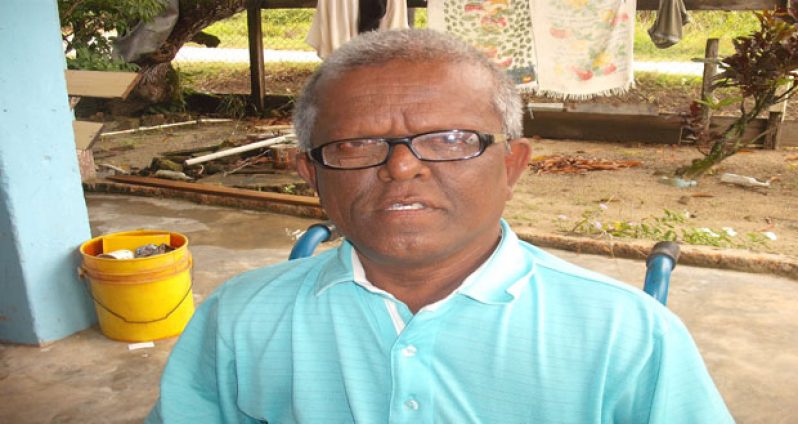NOW 58, Ramanan Chaturi was born as a ‘short person’, and he believes that one of the reasons for this is that his mother, while pregnant with him, looked at a short person and was intrigued at what she saw.
“I was born as a ‘short man’. My father went to Georgetown and saw ‘Sandokie’, and he came home and told my mother about this short person he (had seen). My mother was anxious to see him, and so my father took her to meet him on their next visit to Georgetown.
“Her next child came out like that,” Chaturi told the Chronicle a few days ago.
“So,” he recalled, “my father told her she got one (a short person) right in her home. That’s why they say (that) during pregnancy, it is not good to laugh (at) anyone and that sort of thing,” he admonished. “She didn’t laugh at Sandokie, but she was just anxious to see him,” he explained.
“As I grew up, they told me something like that happened in my case. So I don’t know if it was God’s work, or what happened,” Chaturi declared.
Popular on the island of Leguan as ‘Short Man’, ‘The Sheriff,’ ‘The Marshall,’ among other names, Chaturi was born and raised in Maryville village to Chaturi Nagasar and Sohodra, father and mother respectively. He has seven brothers and one sister, and attended Maryville Primary School.
“In my days, there was no secondary school; primary (school) was the limit to education. I finished my primary education, leaving school at 16,” he recalled.
A confident and well-spoken Chaturi said there were hardly any jobs available for him after he left school, so he opted to go live with one of his sisters in the neighbouring island of Wakenaam. Once there, he was able to assist her in farming.
At age 22, he took up his first job as a tailor. A brother of his was living in Kitty, Georgetown, and he went to stay with this brother for a while. “He, too, was a tailor, and he left a machine in the shop. I said to myself (that) as he left it, I will make use of it. I tried to learn the job, and succeeded for about six months.”
Sadly, though, thieves broke in the shop and stole the machine, and Chaturi was again left without work. “I called off this job,” he said, and thereafter, he started to run a guesthouse for a friend; but that, too, was “cheap labour,” he recalled.
“I then decided to go back to tailoring. I worked with a friend, but eventually quit again. Things were hard in Georgetown,” he related.
He then went back to Wakenaam and did security work for some twelve years.
Chaturi eventually became sick, and had to undergo an operation, which he said weakened him. “I ended up in a wheelchair. I am now five years in it. I used to walk around, ride a bicycle all over the island with ease. Now, I can’t walk. My brother, Bebakanand, with whom I live, cooks for me.”
Chaturi said he would come out of the wheelchair and sit on each step in the house until he reaches the top. “I miss my legs, because it’s very hard to go up and down. I come down in the morning and don’t go up until I’m ready to sleep,” he related.
Despite this obstacle, Chaturi says he chooses to remain positive. “I don’t face too much of serious problems. I try to make life comfortable. For me to complain would not solve the problem. You have to try and solve the problem by yourself, or maybe with help from a Good Samaritan who might be passing by at the same time you need help,” he said.
Chaturi enjoys going to the ball field in the afternoons, and visiting others in the community with his battery operated wheelchair. “Friends from the village come to chat with me. I go and visit the elderly and the sick. It’s nice to go and visit people too, and hear what they have to say, too. I am trying to be with good friends. It’s better you follow good company. You might get your little bitterness, but you have to make it sweet,” he expressed.
Chaturi has few regrets in his life, except that he has lost his sewing machine and his legs. Now he is simply relaxing in his wheelchair.
By Telesha Ramnarine



.jpg)









